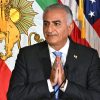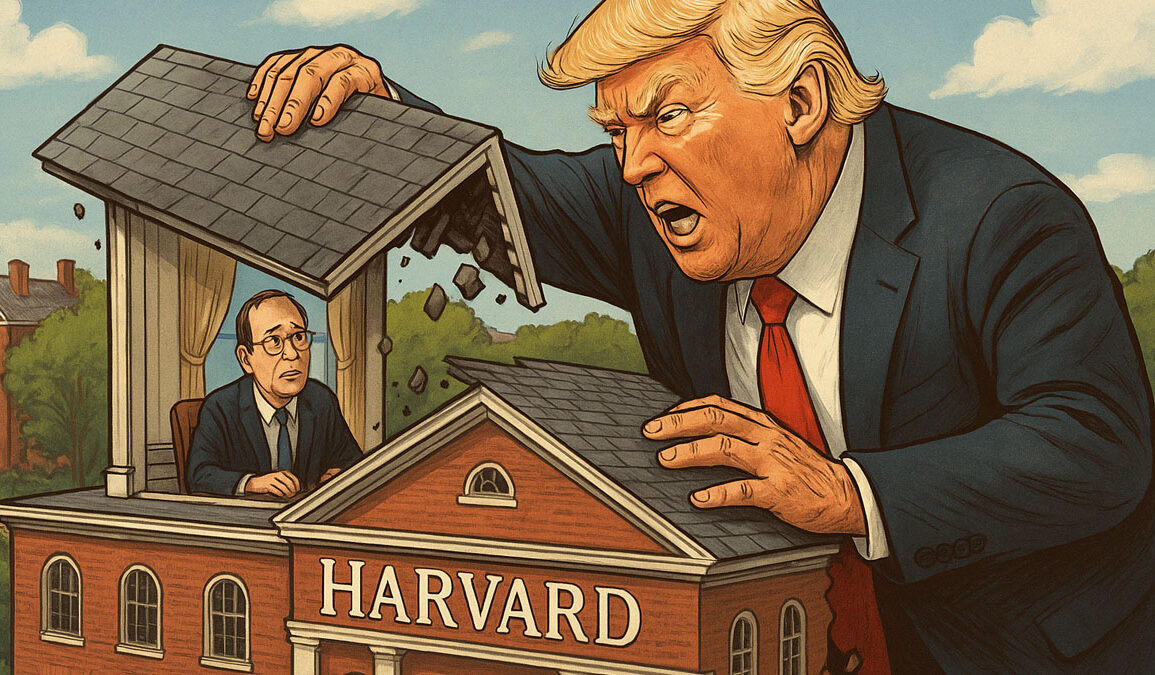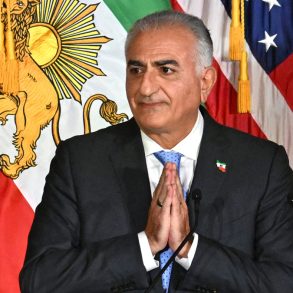The Trump administration has officially stripped Harvard University of its ability to enroll foreign students, marking one of the most aggressive moves in the administration’s effort to reshape higher education policies and confront what it calls “a culture of antisemitism, extremism, and lawlessness” on elite college campuses.
The Department of Homeland Security (DHS), under Secretary Kristi Noem, announced that Harvard’s Student and Exchange Visitor Program (SEVP) certification had been revoked. Without it, the university can no longer issue the paperwork that allows international students to study legally in the United States. Existing students on visas must now transfer to another certified institution or leave the country entirely by the end of the summer.
“This administration is holding Harvard accountable for fostering violence, antisemitism, and coordinating with the Chinese Communist Party on its campus,” Secretary Noem said in a public statement. “It is a privilege, not a right, for universities to enroll foreign students and benefit from their higher tuition payments to help pad their multibillion-dollar endowments. Harvard had plenty of opportunity to do the right thing. It refused.”
A Tense History Leading Up to the Ban
The conflict between Harvard and the Trump administration has been growing steadily since October 2023, when student protests in support of Gaza erupted across American universities after the Hamas attacks on Israel. The White House responded with a sharp warning to university leaders, demanding stronger efforts to combat antisemitism and monitor foreign student activities tied to political unrest.
In the months that followed, DHS sent multiple requests to Harvard asking for detailed records related to foreign students—specifically those involved in protests, disciplinary incidents, or any conduct considered illegal or dangerous. According to Noem, Harvard “refused to comply” with these requests, offering only “insufficient, incomplete and unacceptable” information.
In a formal letter to Harvard’s immigration services director, Noem wrote, “As a result of your brazen refusal to comply with multiple requests to provide the Department of Homeland Security pertinent information while perpetuating an unsafe campus environment that is hostile to Jewish students, promotes pro-Hamas rhetoric, and employs racist ‘diversity, equity, and inclusion’ policies, you have lost this privilege.”
Noem added that Harvard was given 72 hours to comply with the requests if the university hoped to regain its ability to host international students in the future.
Harvard Calls the Action “Unlawful” and Retaliatory
Harvard responded to the announcement with strong criticism, saying the government’s actions were politically motivated and legally unsound.
“The government’s action is unlawful,” Harvard spokesperson Jason Newton said. “We are fully committed to maintaining Harvard’s ability to host our international students and scholars, who hail from more than 140 countries and enrich the University—and this nation—immeasurably. This retaliatory action threatens serious harm to the Harvard community and our country, and undermines Harvard’s academic and research mission.”
President Alan Garber has suggested the government’s demands amount to unconstitutional overreach. In an interview, Garber said the administration was attempting to force Harvard to “audit the viewpoints of faculty, students and staff,” which he described as an attack on free expression and academic freedom.
Harvard has filed a lawsuit against the administration, arguing that it has violated the university’s due process rights and is using the visa program as leverage in a political battle.
The Broader Fallout for Harvard
The loss of the student visa program is a significant blow for Harvard, where roughly 27 percent of students are from outside the United States. More than 6,700 international students were enrolled in the last academic year, many of whom pay full tuition. The financial loss could be steep, especially after the Trump administration already froze $3 billion in federal funding and began reviewing Harvard’s tax-exempt status.
Some Harvard faculty say the move could have devastating consequences. “It is impossible to imagine Harvard without our amazing international students,” said Jason Furman, an economics professor and former Obama administration official. “They are a huge benefit to everyone here, to innovation and the United States more broadly.”
Another professor warned, “Many labs will empty out if this continues.”
International students, many of whom are graduating soon, are now scrambling for answers. “We’re all just sitting back and waiting to see whether or not we get communications about what the next steps are from the university,” said Sarah Davis, an Australian graduate student. “It’s come just days before graduation, and now no one knows if we’ll even be allowed to stay.”
The Administration’s Justification
From the White House’s perspective, Harvard’s actions created an unsafe environment. They say the university has failed to protect Jewish students and has actively resisted efforts to investigate students who may be promoting terrorism or hate speech.
Secretary of State Marco Rubio told Congress, “We’re going to continue to revoke the visas of people who are here as guests and are disrupting our higher education facilities. A visa is a privilege, not a right.”
White House spokesperson Abigail Jackson put it more bluntly: “Harvard has turned their once-great institution into a hot-bed of anti-American, anti-Semitic, pro-terrorist agitators. They have repeatedly failed to take action to address the widespread problems negatively impacting American students and now they must face the consequences of their actions.”
Critics Warn of Long-Term Damage
While many conservatives have praised the administration for cracking down on elite institutions they say have lost touch with American values, others argue the move is shortsighted and harmful.
Ted Mitchell, president of the American Council on Education, said, “International students broaden the perspectives on campus, contribute to economic growth, and add to the scientific progress of the U.S. It’s fair to say higher education has been the most powerful part of our soft diplomatic power in the world for decades.”
Fanta Aw of the Association of International Educators said, “This is going to chill enthusiasm for U.S. education around the world. Students will think twice before applying to a country where they might be deported for attending a protest.”
Leo Gerdén, a 22-year-old graduating Harvard student from Sweden, said the experience has left him disillusioned. “They’re turning international students into poker chips in a battle between Harvard and the White House,” he said. He now plans to pursue his master’s degree in China
The Trump administration has made clear that it is willing to use federal power to reshape how universities operate, especially when it comes to foreign student access, free speech issues, and DEI programs. While Harvard has not ruled out a legal challenge, for now, the school is left scrambling to support thousands of affected students.
The administration has said Harvard may reapply for SEVP certification, but only if it complies with all DHS demands within the 72-hour window. As of now, that deadline is quickly approaching—and Harvard’s leadership has given no sign that it intends to back down.








